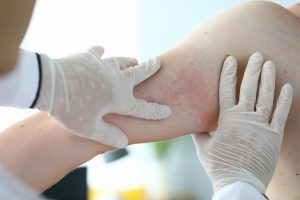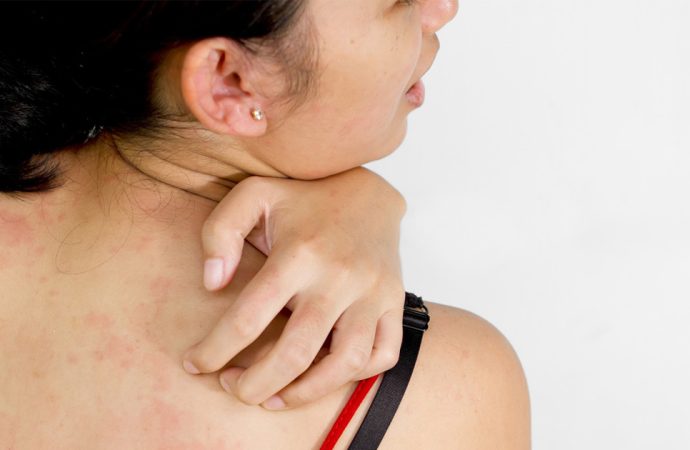Understanding the Significance of Rashes Rashes are a common occurrence for many individuals, often dismissed as minor irritations or allergic reactions. However, it’s crucial to recognize that sometimes, a rash can signify a deeper underlying issue that requires immediate attention. In this comprehensive guide, we delve into the nuances of rashes, exploring when they may
Understanding the Significance of Rashes
Rashes are a common occurrence for many individuals, often dismissed as minor irritations or allergic reactions. However, it’s crucial to recognize that sometimes, a rash can signify a deeper underlying issue that requires immediate attention. In this comprehensive guide, we delve into the nuances of rashes, exploring when they may indicate more serious health concerns. Explore more about (Risk and Solution of Nighttime Itching)
Identifying Different Types of Rashes
Rashes come in various forms, each with its own distinct characteristics. Understanding the differences can help in determining whether a rash warrants further investigation. Here are some common types:
1. Contact Dermatitis
Contact dermatitis occurs when the skin reacts to an irritant or allergen, resulting in redness, itching, and sometimes blistering. It can be caused by exposure to substances like soaps, cosmetics, or certain metals.
2. Eczema
Eczema, also known as atopic dermatitis, is a chronic skin condition characterized by inflammation, itching, and rough patches. It often appears in childhood and can persist into adulthood, causing discomfort and impacting quality of life.
3. Psoriasis
Psoriasis is a chronic autoimmune condition that speeds up the growth cycle of skin cells, leading to the formation of thick, red patches covered with silvery scales. It can affect various parts of the body, including the scalp, elbows, knees, and lower back.
4. Heat Rash
Heat rash, or prickly heat, occurs when sweat ducts become blocked, trapping sweat beneath the skin. This can result in redness, itching, and small bumps, particularly in areas prone to sweating, such as the armpits, groin, or neck.

Image by: yendex.com
When to Seek Medical Attention
While many rashes are harmless and resolve on their own, there are certain warning signs that indicate a need for medical evaluation. It’s essential to be vigilant and seek prompt attention if you notice any of the following:
1. Rapid Spreading
If a rash spreads rapidly or covers a large area of the body, it could be a sign of a more serious infection or allergic reaction.
2. Severe Itching or Pain
Intense itching or pain associated with a rash may indicate an underlying issue that requires medical intervention. It’s important not to ignore persistent discomfort.
3. Presence of Fever
A rash accompanied by fever could be a symptom of an infection or systemic illness. In such cases, it’s advisable to consult a healthcare professional for proper diagnosis and treatment.
4. Blistering or Open Sores
Rashes that develop blisters or open sores may be indicative of conditions such as shingles or impetigo, which require medical attention to prevent complications and facilitate healing.

Image by: yendex.com
Common Types of Rashes
| Rash Type | Characteristics | Treatment |
|---|---|---|
| Contact Dermatitis | Redness, itching, blistering | Avoidance of irritants, topical corticosteroids |
| Eczema | Inflammation, itching, rough patches | Moisturizers, corticosteroid creams, antihistamines |
| Psoriasis | Thick, red patches with silvery scales | Topical treatments, phototherapy, systemic therapy |
| Heat Rash | Redness, itching, small bumps | Cool, dry environment, avoiding tight clothing |
Conclusion
In conclusion, while rashes are often benign and self-limiting, it’s essential to pay attention to any changes in your skin and seek medical advice if you have concerns. By understanding the potential significance of rashes and knowing when to seek help, you can prioritize your skin health and address any underlying issues effectively.
Remember, your skin is your body’s largest organ, and taking care of it is vital for your overall well-being. Stay vigilant, stay informed, and don’t hesitate to reach out to a healthcare professional if you have any concerns about your skin health.
















